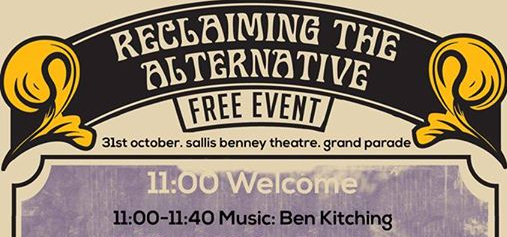Can the ethic and practice of sharing really create fairer, more sustainable and more democratic societies - and if so, how is it going to happen?
STWR recently took part in an event called Reclaming the Alternative held in Brighton, East Sussex, UK (#ReclaimingBrighton). The free event was based on the ethic of the gift and sharing, with various presentations given about grassroots alternatives to the unsustainable business-as-usual economy. STWR was invited to give a perspective on the transformative potential of the sharing economy, in which we introduced our essential argument: that the sharing economy indeed has the potential to transform society, but only if it is part of a massive, global and explicitly political movement aiming towards real justice, sustainability and democracy.
After introducing the two sides of a debate on sharing, our short presentation explored whether the sharing economy in its current form represents a movement that can lead us towards the kind of radical changes we need to make the world a better place for everyone.
The talk can be listened to below in which some fundamental questions are introduced, such as: should interpersonal forms of sharing be commercialised, and should commerce have any part to play in a ‘true’ sharing economy? What are the implications if for-profit sharing companies are to remain genuinely aligned with the principle of sharing? And will new business models and technologies that are based on the principles of cooperation and sharing be enough in themselves to challenge existing power structures and lead us towards transformative, systemic change?
Broadening this debate to include the role of governments, the presentation briefly outlines the kind of systems of sharing that need to be strengthened and scaled up if we are to talk about a ‘sharing society’ in any meaningful sense. It also posits that if we want to think really big about sharing in terms of resolving the world’s interlocking crises, then it stands to reason that our understanding and definition of sharing must also include critical forms of sharing resources on an international basis.
In summary, the message of the talk is that supporters of peer-to-peer sharing could help build a much stronger identity by recognising that their activities form part of these broader and more fundamental systems as well as practices of sharing that operate at all levels of society. And if the sharing economy movement is to be truly transformative, it means that we have to move beyond the solely personal, community and city-oriented view of sharing, and also embrace a much wider understanding of sharing that includes the role of governments as well as global institutions like the United Nations.
Here is an audio recording of the talk below (with apologies for the poor quality).
Photo credit: Bright N Green #reclaimingbrighton

